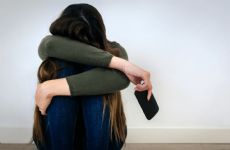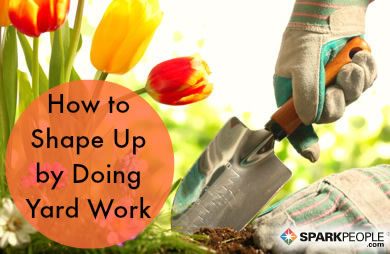|
About 12 years ago, a friend invited me along to Miami to celebrate a 50th birthday party in style. The celebration was as to be expected: enjoying the casual beach vibes, eating and drinking with nary a thought about health or fitness. It was all good. All good, that is, until an afternoon island hopping evolved into an attack on body image with me—or more specifically, my physique—at the center of the argument. With everyone in their bikinis, one woman turned to me, loudly declaring, "If I had a body like that, I'd rule the world!" Rather than celebrating body differences and discussing fitness aspirations, the single comment resulted in the group ganging up on me, critiquing and chiding me for being fit—all over a comment I didn't solicit and found ludicrous. While there are countless instances in which envy over how I looked caused people to react to me in a certain way, the above example is particularly poignant. The fact that alcohol was involved (which certainly played a big part in the petty behavior) didn't ease the shock I felt from my long-time friend joining in to ridicule me with comments like, "Well, what do you expect—look at how you're dressed!" What!? In a bikini, like every other woman on board? I was 47 at the time, not the youngest in the group, though I remember feeling like this might as well have been an instance from my teenage years. Those school years were the worst: I was fully developed by seventh grade and girls called me unsavory names while boys only noticed my sexual characteristics and made lewd comments as well. I was singled out and constantly harassed. Thinking things would change once I graduated and entered the 'adult' world gave me hope that life would become better, though this was not the case. The harassment only changed in form of delivery. What's Hiding Beneath the SurfaceWhile most of us enjoy compliments, they can cause true discomfort. For me, oftentimes others assumed my life was blessed with success, love, happiness, the ability to always get my way or what I wanted because of my looks. While being complimented for having a beautiful physique was nice, compliments didn't recognize the harsh reality that I was living day to day—one of emotional agony as I worked to hide a secret I dreaded would be discovered. Twenty-three years would pass before I decided to disclose the details of this most intimate part of my life: my years-long eating disorder. With explicit candor, I wrote and published "Battling Bulimia" in a national magazine in 1997. Due to the length of my article, I will share only a portion here, in hopes that my struggle will shed some light on the severity of disorders such as mine. My story began as follows: "Nachos with extra beef and cheese. A one-pound box of Russell Stover chocolates. The family-size caramel Crunch-N-Munch. One liter of Pepsi. That was my breakfast. Gross? Disgusting? Yes—and if you have a full-blown case of bulimia, as I did, that's exactly how you feel. And helpless, hopeless and insecure. For more than 20 years, this is how I felt during most of my waking moments. I ate all those foods—and then some—on a daily basis. And as I came to learn, I was not alone. Eating disorders affect millions of people—especially women." Current statistics state that about 30 million people in the United States alone suffer from eating disorders and that despite the serious risks they pose to one's health—including death—they continue to receive inadequate research funding. Considering that the disorder is rearing its ugly head at an earlier age every year—with 40 to 60 percent of school girls age six to 12 now being concerned about their weight, according to the National Eating Disorders Association—it appears this is rapidly transitioning to an epidemic that could spiral out of control if it doesn't get the attention it deserves. Consider this: Bulimia, a disease that does not recognize class or race, tripled in women ages 10 to 39 years old between the years 1988 and 1993. "I was in my early 30s when my binge eating was at its worst. For three months, I had a routine of shopping for my daily supply of binge food, with a typical shopping spree consisting of a dozen doughnuts, nacho fixings, two liters of Pepsi, a bag of cookies and at least two or three different kinds of candy. I was petrified that someone I knew would see me purchase all that junk, so I would shop in stores miles from my home. I also didn't want store clerks to become familiar with my habit so I went to several different stores." This three-month period started with the loss of my father, divorce after five years of marriage and a bicycle accident. I was now living alone and there was no one to hold me accountable. While I don't like to mention binge foods as I don't want to trigger someone's binge, here I must make an exception for the sake of honesty. I am amazed at how much energy I put into this destructive behavior. When I say I have given up some of the best of my life to this disorder, this is exactly what I mean. "Over the course of a day, I would eat everything I'd purchased while I sat alone watching TV. If anything was left, I would throw it out and promise that I'd stop tomorrow. I couldn't just throw food in the trash—I'd been known to go through my garbage for food I'd already thrown out—I'd throw it over the backyard fence, in the weeds and dirt, so bugs would attack it and it would be rendered unpalatable. When homes were built behind my house and I could no longer toss leftovers there, I would drive several miles to dispose of it in filthy public receptacles guaranteeing no possibility of retrieval. When 'tomorrow' came and I found myself driving to the store yet again, I became numb, feeling like a passenger in someone else's life. I had this internal discussion with myself as I drove: "Don't do this, Stace. You're ruining your health, you can't fit into your clothes, you're ashamed of your appearance, of your behavior, and you're cutting yourself off from life." These thoughts only made me feel more alone and isolated and I would continue down the road, crying and angry with myself all the way. I was losing hope that I could ever have a normal, purpose-filled life. I constantly let myself down on the promise that I'd stop, yet as I'd eat that last piece of chocolate, I'd vow again: "You will stop this tomorrow, Stace, once and for all." Eventually, I quit making that promise because breaking it only added more stress and more binge eating. I hated what I was doing to myself: I stopped going out, stopped taking phone calls, wouldn't answer the door, stopped seeing the few friends I had. I wasn't working so there was really no reason to even get out of bed in the morning and I feared that my life would never be more than a constant food fest. I felt so awful and out of shape, but I just couldn't stop the bingeing. I didn't think anyone could understand what I was going through—even I didn't understand it. I just knew that I was full of pain and that when I tried to stop and look at what I was doing, I felt overwhelming anxiety. I couldn't cope with those feelings, and food became the Band-Aid I used to cover the wounds. I put on 40 pounds in those three months and God help me, I wanted to die." This is where I will stop relaying the contents of my story. In 1983, Karen Carpenter died at the age of 32 after a two-year struggle with anorexia. I was a huge fan of hers and was deeply touched. This was also the first high-profile instance of death due to eating disorders that created public awareness. Then, in 1992, tennis superstar Zina Garrison disclosed that she had been suffering with bulimia since 1983. Other than this, there were few instances of eating disorders being openly discussed. So much stigma surrounds the subject and because of this, I almost chose to keep this story to myself. Based on circulation, the estimate is that close to 400,000 people read my story. The responses ran the gamut from empathy to pure disgust, which was no surprise since there was still very little public discourse on eating disorders. While twenty more years have passed since its publication, it is still unsettling for me to re-tell, though it is evident to me that everything in this suffering has made me who I am today—not perfect by far, but someone who values truth, honesty, strength, courage and determination and has made it her mission to live with these as her guiding light. On September 16, 2017, I entered my first figure competition at age 57. For more than 40 years, this is something I wanted to pursue as a career but I let bulimia run my life. After years of waiting and delay, I took home a first and two second place awards. For the last two years, I have blogged about my journey through a 35-plus year struggle to overcome bulimia. A reader comment was left on my website, stating that perhaps women would see "...my gorgeous pictures and long story, they will not want to read more, that they will click on photos, get scared and not go further." That, dear reader, is entirely your choice. If you find my photos gorgeous, thank you! It should serve as hope and inspiration that no matter how dark your world feels, you can overcome and you can do this at any age. If you don't know where to start, you can contact me and I will respond. I will do whatever I can to help you and that is a promise, just please, do not feel alone. The lesson here is to never judge a book by its cover. While some might see a trainer in a bikini, underneath may lie the scars and pains of years of body acceptance struggle and strife. My story is a long one, and I'm not finished yet. Remember that no matter what challenges you struggle with, no matter what your suffering may be, there is a way to overcome. You may need to step out of your comfort zone and risk reaching out and exposing yourself but please don't be afraid to believe in yourself. About the Author Stacey Ferrari is a NASM-Certified personal trainer and founder of Fifty Fierce, a motivational website dedicated to women over the age of 50. |
More From SparkPeople
|















.jpg)

